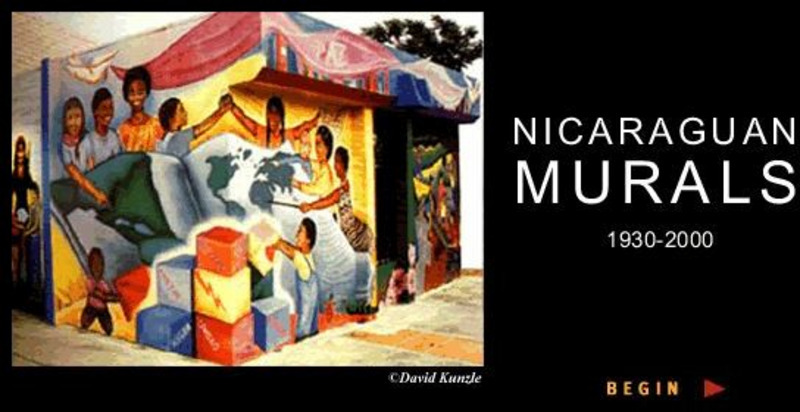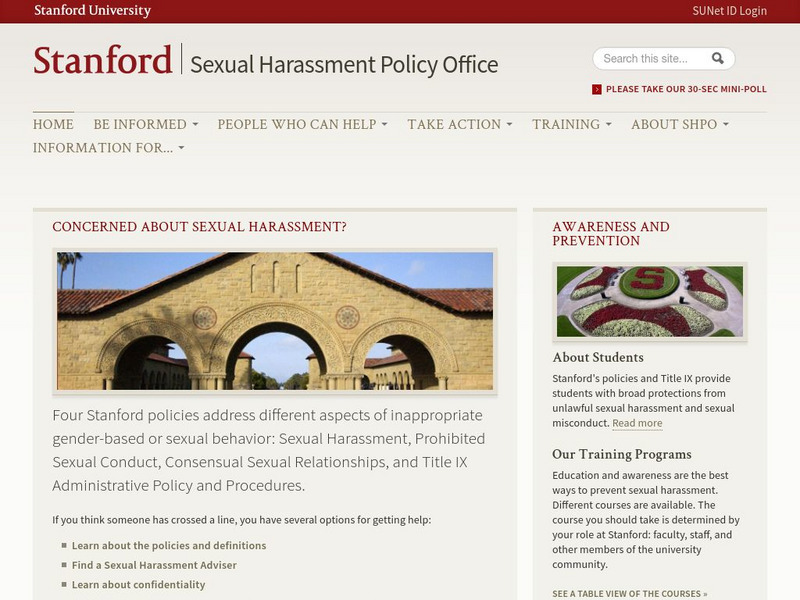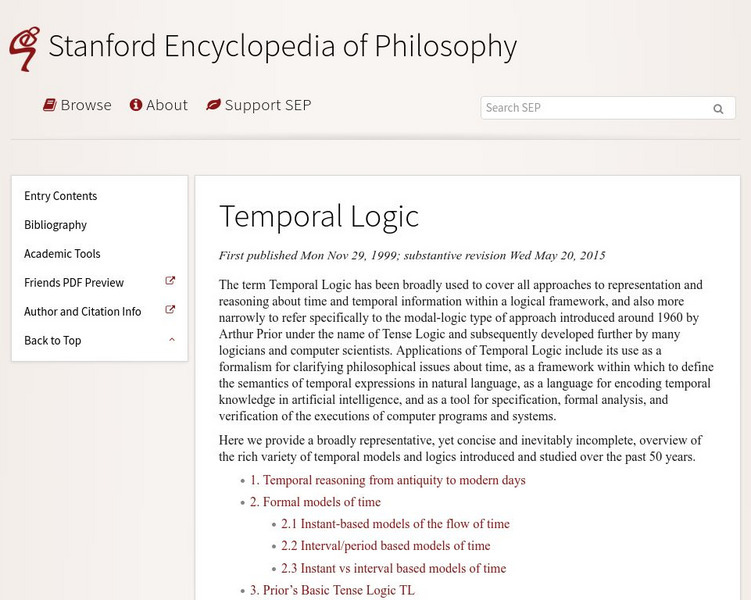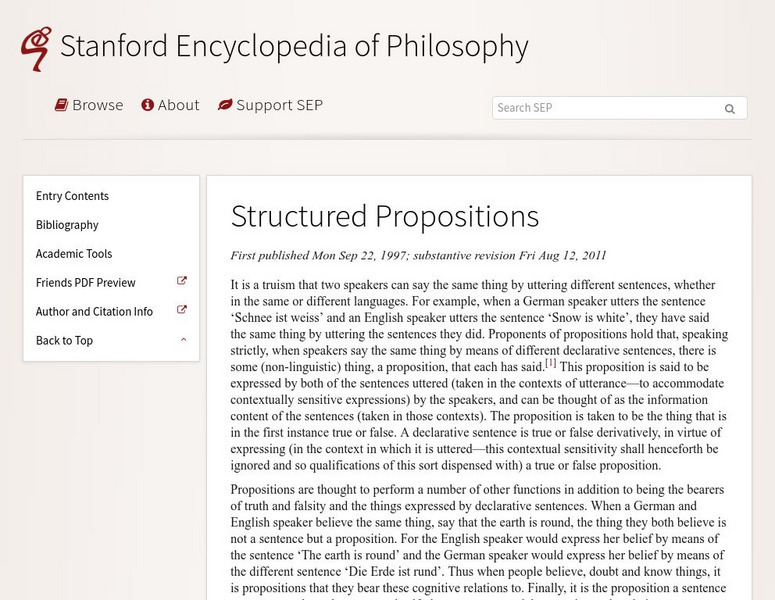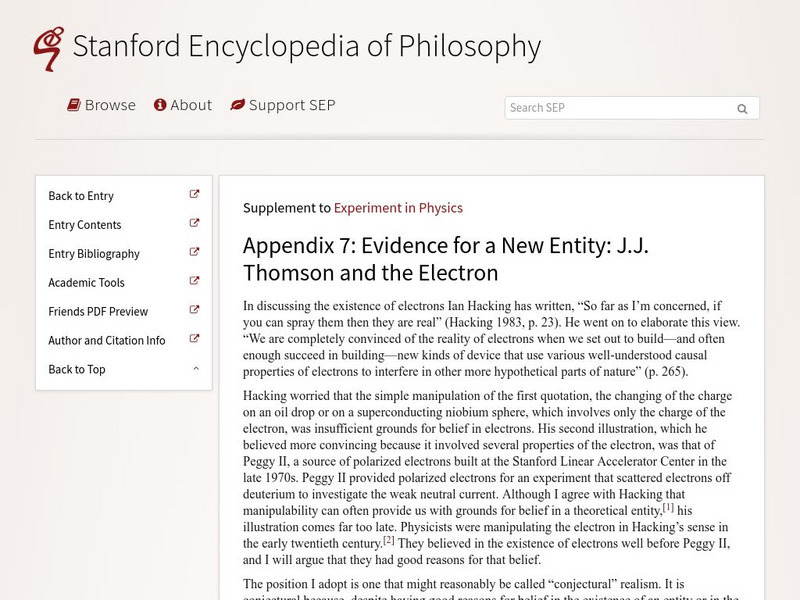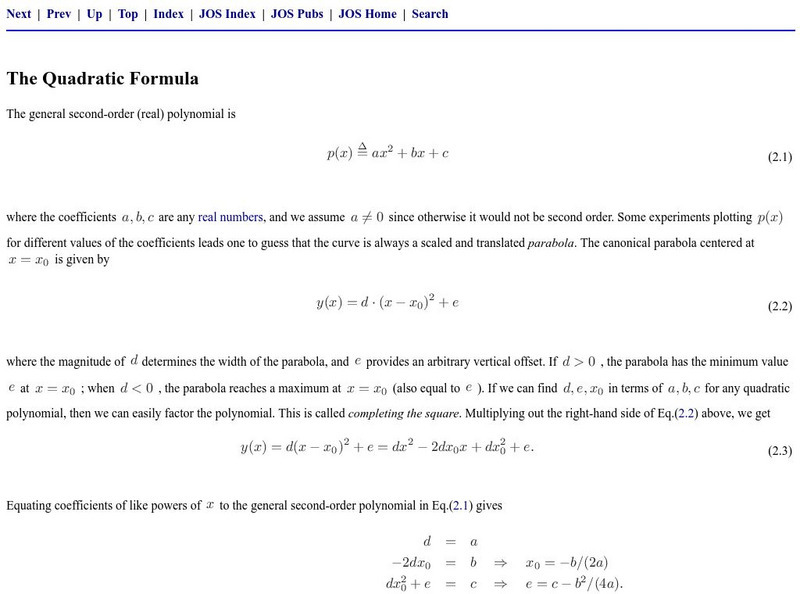Hi, what do you want to do?
Stanford University
Stanford University: The History of Apartheid in South Africa
Presents a history of apartheid in South Africa as part of a university course project.
Stanford University
Percussion Fm Synthesis
Interesting site on the technical side of FM synthesis, including how to make different sounds. For either the very curious or very advanced student.
Stanford University
Stanford University: Sleep Talking (Somniloquy)
This site discusses sleep talking. It answers the questions of: What is sleep talking? What are the symptoms? Why do some people talk in their sleep?
Stanford University
Stanford Center for Latin American Studies: Nicaraguan Murals
Visual database of murals created in Nicaragua between 1930 and 2000.
Stanford University
Influenza Pandemic of 1918: Statistics From the Influenza Epidemic
Find a graph showing the mortality caused by the influenza epidemic in Kansas in 1918. Included is a map showing the spread of the flu across the United States in the autumn of 1918.
Stanford University
Dime Novels: Deadwood Dick's Doom; Or Calamity Jane's Last Adventure
This site provides the full text to the dime novel, "Deadwood Dick's Doom" (or "Calamity Jane's Last Adventure"), by Edward L. Wheeler, published in 1899.
Stanford University
Stanford University: Alcohol, Tobacco Staples of Movies
This site from Stanford University shows how you can learn how the entertainment industry sends both positive and negative messages concerning substance use through movies and music. This article summarizes government research that...
Stanford University
Stanford Report: Condoleezza Rice Commencement
This site provides the full text of Condoleezza Rice's commencement address to the 2002 graduating class at Stanford University. Speech is titled "Acknowledge that you have an obligation to search for the truth."
Stanford University
Stanford University: Failure to Communicate
This article from Stanford University outlines the oral communications course from Stanford. The article discusses the need for teaching oral communications.
Stanford University
Riverwalk Jazz: Speakeasies, Flappers, and Red Hot Jazz: Music of Prohibition
Script of a radio broadcast about Prohibition and Jazz Age America comments on black market bootlegging, jazz music, speakeasies, flappers, and women`s suffrage.
Stanford University
Stanford: Pocahontas
A paper that details the historical accuracy of the famous story of Pocahontas and the rescue of Captain John Smith.
Stanford University
Stanford University: Accelerators
This site is provided for by the Stanford University. Part of SLACs virtual visitors center outlining the construction and operation of a linear accelerator, including descriptions of each of the major parts. Good physics content for...
Stanford University
Stanford University: Sexual Harassment Policy Office
Very explicit guidelines, as set by Stanford University, to help stop sexual harassment, as well as resources to pursue in cases.
Stanford University
Temporal Logic/stanford Encyclopedia of Philosophy
Discusses the temporal logic of Arthur Prior, a type of modal logic. After technical definitions, author addresses related philosophical issues. Also summarizes applications in natural language, computer science, and artificial...
Stanford University
Stanford University: Structured Propositions
This site provides some brief, general information about structuring propositions.
Stanford University
Stanford Encyclopedia: j.j. Thomson and the Electron
This site from the Stanford Encyclopedia of Philosophy offers a historical review of the discovery of the electron by J. J. Thomson and how he came to his conclusions performing experiments witha cathode ray tube.
Stanford University
Quadratic Formula/explanation
A step-by-step explanation of how the quadratic formula is obtained from the general form quadratic polynomial.
Stanford University
Stanford Encyclopedia of Philosophy: Atheism and Agnosticism
Article explains the philosophical differences between atheism and agnosticism.
Stanford University
Stanford University: The Dualist
The Dualist is a publication dedicated to recognizing valuable undergraduate contributions in philosophy and to providing a medium for undergraduate discourse on topics of philosophical interest.
Stanford University
Stanford University: Gallery of Turbulent Flows
A gallery of images depicting various fluid dynamics situations.








